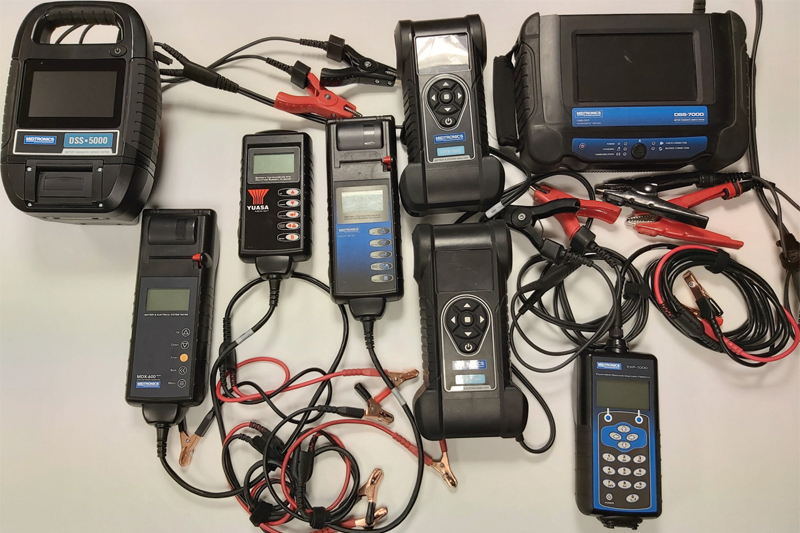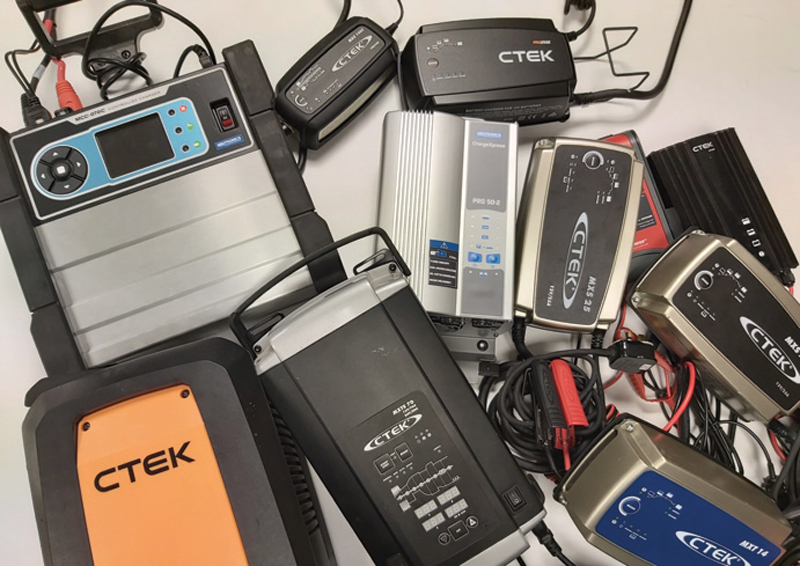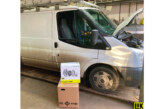
Ken Clark, Managing Director at Rotronics, provides some top tips on how to breathe new life into your workshop and get battery processes in optimal order.
Health check
The first key activity for workshop technicians is to make sure that a battery health check is completed for every vehicle that comes in.
What you need to confirm, via the battery tester, is that the batteries are in balance and in a good state of charge. If they are out of balance and need a charge, double check the test results and ensure that they are getting charged correctly. It is important to really understand what the test results are telling you – do you understand the results that you are getting?
If not, examine the test report, and take action to charge or replace those batteries that have been identified as requiring attention. Printing off a test report and attaching it to a ‘job sheet’ does not cure flat batteries or prevent vehicles from breaking down.
Time to charge
What charging time are you making available in the workshop processes? It’s not time consuming, you just need to follow the simple key steps.
We have discovered that it is common practice for workshop staff to simply perform a battery test without either checking the electrical system, or remedying the test result, particularly when it comes to the ‘battery requires charging’ outcome.
A battery test is a simple process, which technicians can perform quickly; however, this is only part of the process. We also find that ad hoc testing is being done, and processes can be inconsistent and numerous vehicles can go through without being checked. Rotronics has now introduced ROBIS, the wireless web-based dashboard and reporting system that helps workshops collect and analyse battery data from their regional and national workshops, quickly and easily.
We can now identify where testing and charging is not being completed consistently. Our customers, with national commercial vehicle workshops, have a clear action pathway to validate that all vehicles are being tested and charged in the correct way. This leads to improved fleet battery health and performance, and fewer costly roadside defects.

Take the extra step
If a battery needs to be replaced or require further charging, how are you making sure that this happens? The old saying goes: “What gets measured gets actioned.” If a battery is suspect and the technician charges it up, it may show that it is charged. But, just hooking the battery up to a charger does not necessarily mean that it is recoverable.
You can’t recover a battery by simply charging it; you need to expand the process to include a battery test first to understand whether the battery itself is recoverable. If any battery requires ‘deep’ charging before it can be tested (often seen as a ‘charge and test’ result), then it should be treated with some caution. This is likely to be unrecoverable if it has been discharged for a prolonged period.
Modern intelligent battery chargers may indicate the battery is fully charged, however, this can also mean the ‘charge acceptance’ of the battery is very low. This gives the impression the battery has fully recovered, when, in fact, to prevent excessive gassing, the charger has ceased charging the battery to prevent thermal runaway. In such cases, you may need to consider testing the battery after charging to ensure it has either recovered or requires replacing to prevent further defects.
Stay up-to-date
Many commercial vehicles are now fitted with enhanced flooded batteries (EFBs). Does your workshop have the technology that can accurately test these batteries? It’s crucial to ensure your workshop has the up-to-date technology. There are many EFBs that can only be tested with specifically-designed algorithms within Midtronics’ dedicated EFB testing platform.
Battery performance
If you are not happy with your batteries, or the perceived performance they are giving you, should you change supplier? After all, this is often the time of year when workshops look to renew or change battery supplier contracts.
We know from our research with Rotronics that, if batteries are not fully looked after, they will fail, so simply changing your battery supplier will not make any notable difference. Before making this step, consider this as an opportunity to look at your battery-related workshop practices as a starting point, and introduce a battery management programme to fully understand the root cause for your concerns, then proceed armed with the facts.
Don’t throw it away
Dirty clamps and worn cables can frequently leave some testing and charging technology out of action. Rotronics has an expert service and repair team, offering a comprehensive service supporting all Midtronics and Professional CTEK charging platforms, the PRO Series, 25A and above.
Rotronics often visits workshops to discover unused, but still essential, equipment that is doing nothing more than gathering dust. The technicians are delighted to know that it can be repaired. If your tester or charger is showing any sign of fault or malfunction, don’t throw it away. We can help to provide a full repair with warranty if the product is still in the warranty period.
One key area to check is the software on your battery testers. It is vital to ensure you can support modern day batteries, stop/start applications, and EFBs. Left unchecked, and without the latest update, your testers will misdiagnose, and this can lead to lost revenue streams and dissatisfied customers.








